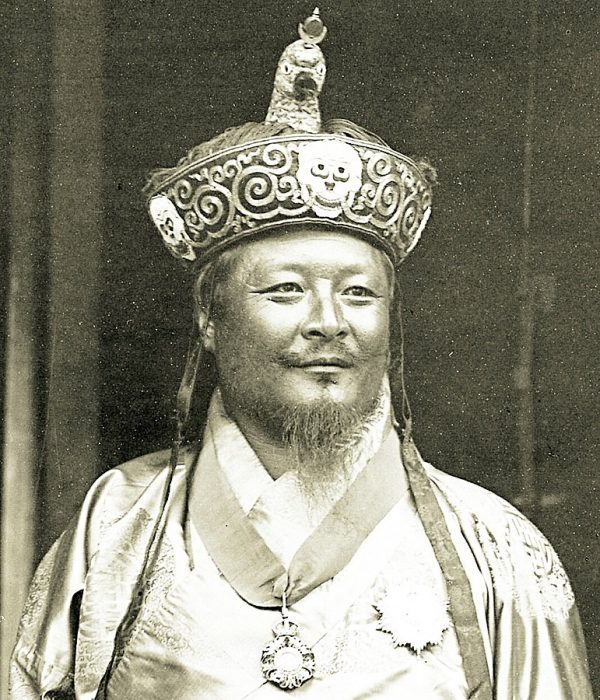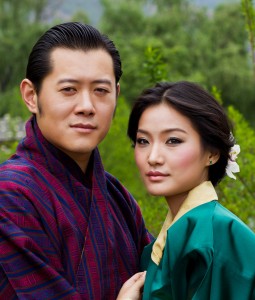Did you know that the King of Bhutan was the last last absolute monarch to willingly give up power?
In the modern world, there are far less countries governed by monarchies than are republics. When we think of monarchies we tend to think of them as writhe the constitutional monarchies of Europe, or the rather sinister absolute monarchies of the Middle-East. But, actually, there’s a few others in Asia and beyond that fit somewhere snugly in the middle of them is Bhutan.
Bhutan is a landlocked kingdom between India and China and has for centuries therefore been governed by, under the protection of, or as a vassal state of one or the other for much of history. This was to change in 1907 when it fell under the auspices of the British Empire.
First king of Bhutan

In 1907, an important year for Bhutan, Ugyen Wangchuck was unanimously chosen as the hereditary king of the country or Druk Gyalpo, the Dragon King in Dzongkha, by the Lhengye Tshog of leading Buddhist monks, as well as other important stars of Bhutanese society (as well as the British). Thus, the modern day Kingdom of Bhutan was born.
Bhutan gains independence
Not long after a treaty was signed with the British whereby the UK would look after the foreign affairs and defense (from the Chinese) of the country. At the time of India’s independence, Bhutan, along with Nepal and Sikkim retained their independence from India, whilst all still remaining politically close to their large southern neighbour.
The slow walk to democracy

In 1953, King Jigme Dorji Wangchuck established the country’s legislature – a 130-member National Assembly as well as later forming a Royal Advisory Council.
For almost the next 50 years reform and indeed moving to the present time occurred at a bit of a snail’s pace in Bhutan, something the local Bhutanese seemed to really not mind.
In 1999, Bhutano one became of the last countries to legalize television and the internet with the King of Bhutan stating it was integral to his policy of Gross Domestic Happiness – yeah more on that later…
Jigme Singye Wangchuck, འཇིགས་མེད་སེང་གེ་དབང་ཕྱུག་, (born 11 November 1955) became King of Bhutan in 1972 and is in many ways responsible for what is modern Bhutan.
In the early 2000s, the King of Bhutan announced that Bhutan would no longer be an absolute monarchy, but would transition to democracy. Great idea! The country held a mock election in 2007 to train the Bhutanese ins hat to do by either voting for red, green, blue and yellow. In major shock to everyone, Druk Blue won!
By 2011, full elections had been held and the full transition to democracy had been achieved. As it stands, the king can even be impeached if two thirds of the National Assembly agree to it.
100 years of monarchy in Bhutan!
2007 marked the 100th anniversary of the Dragon King of Bhutan and this was marked with King Jigme Singye Wangchuck adbicating to be replaced by 28-year-old Jigme Khesar Namgyel Wangchuckas, the new Bhutanese King, who rules to this day as the constitutional monarch of Bhutan
Gross Domestic Happiness
Gross Domestic Happiness was the policy of King Jigme Singye Wangchuck. It states that happiness should be valued above wealth for a country. A very noble idea! I knew a guy who measured happiness for the United Nations and proudly informed him about Bhutan (he already knew), he sadly informed me that Bhutan weren’t actually all that happy. It’s sad how truth can be crueler than fiction!
The Kingdom of Bhutan today!
The Kingdom of Bhutan is one of the most amazing places you can visit, with their being restrictions on people visiting the country to help protects its culture.
You can visit Bhutan with YPT on one of our tours to the country. You may well not meet the King of Bhutan, but don’t let that put you off.





